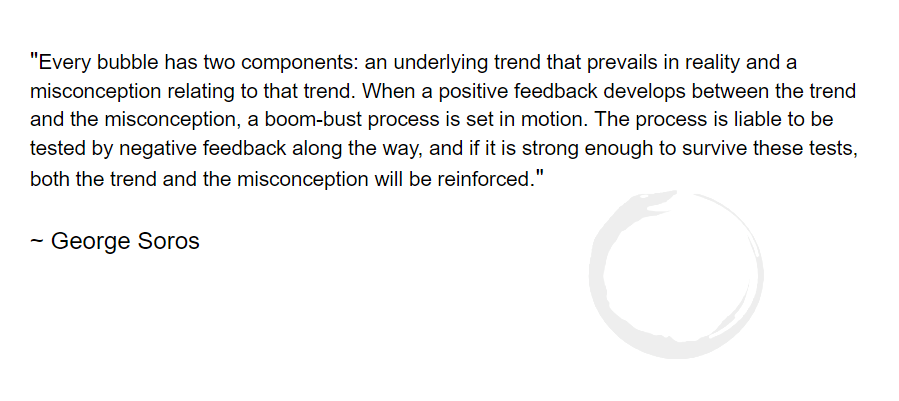Soros on bubbles
https://twitter.com/MacroOps/status/1348342747695108098?s=20

Trump and the attack on the Capitol
A gaggle of Trump supporters marched on the Capitol, egged on by Trump, to protest against the result of the election. Many of them seemed to be actors, maybe hired for the event. Some people got killed. Trump got banned from every social network on the planet (virtually). Parler got closed down by Amazon (because they ran their servers on AWS). I don’t have a good feeling about this. My view is that Trump is not a cause, he is merely a symptom of the contempt that the in which the proletariat his held by the nomenklatura. However, I’m not here to decide what should happen. I’m here to decide what might happen.
A way of thinking about need, value and prices
Homo Economicus has an insight into his utility function, and will pay for a product or service up to the point that it provides utility greater than alternative consumption items. In reality, we spend a lot of our time focussing on what we want to avoid. We buy food because we get utility from it, but this is another way to say that we buy food to avoid or avert the pain of feeling hungry. We buy new clothes items to avoid the embarrassment of wearing last year’s fashion. We go with the salesman’s recommendation because, well he seems a nice guy and we don’t want him to lose his commission or feel like he thinks badly of us. We do homework to avoid the opprobrium of our teacher. We keep vigilant to avoid being eaten by a tiger. Private education gives us hope that our children will not blame us for academic failure. Working hard reduces the chance that our boss will fire us or give us a bad review and no promotion. ESG investments make us feel as though we’re not supporting evil companies. Green products, such as electric cars make us feel less guilty about destroying the planet.
I think this has an implication for marketing. By raising anxiety, consumers can be spurred to action quicker. This has been done for years by insurance companies but it could be done more widely.
I guess that from a utility surface reasoning point of view, this different way of looking at things doesn’t make much of a difference. It’s maybe just changing the sense (direction) of the vertical axis. But humans have have definitely evolved to find pain avoidance more important than pleasure maximization. We just know that if a loss is sufficiently large, it might be the end. Whereas an equivalent gain does not give us an extra life. The static equilibrium analysis misses the time dimension. If we seek to maximize utility integrated over time, extending the upper limit on the time axis makes a lot of difference, even if the rate of utility consumption in this interval is modest, compared with earlier in life. Certainly, as individuals and as a society, we choose to exchange vast resources in exchange for a few extra years of life.
Comments !